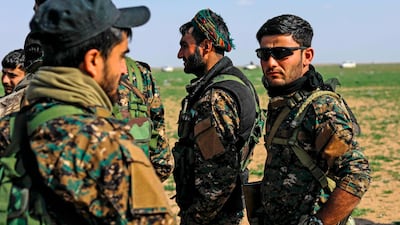Two US delegations are due in Turkey this week, with one set to discuss the stalled talks about a safe zone across the border in Syria.
The other will be pushing the economic side of a Palestine-Israel peace plan that Donald Trump’s adviser and son-in-law Jared Kushner is pitching to the region.
Sources said that the joint US-Turkey working group will be meeting in Ankara this week after meeting in Washington on February 7.
A source confirmed that the delegation arrived in Turkey on Monday to discuss the situation in Syria.
Special representative James Jeffrey is expected to take part in the delegation, after meeting Turkish officials in Munich last week.
The meetings will last two days with the agenda including a safe zone, US arms sales and economic co-operation between the two countries.
Turkish President Recep Tayyip Erdogan is looking to create a Turkish safe zone in Northern Syria after the planned US withdrawal.
But this plan has been rebuffed by US allies the Syrian Democratic Forces, a coalition of Arab and Kurdish militia, and is now considered to be less likely.
Last week, Mr Trump reversed his decision to fully withdraw from Syria and will leave about 400 US troops out of 2,000 in the war-torn country, Bloomberg reported.
Instead of a Turkish-policed zone, which is rejected by the Kurds and the Assad regime so far, the Trump administration is looking to bring together an international force for Syria with the help of Nato.
The size of the unit is still being negotiated, but it would ideally be about the size of the US force today.
Aaron Stein, director of the Middle East Programme at the Foreign Policy Research Institute, told The National that there was growing divergence in US and Turkish views on Syria.
“They share little in common in Syria,” Mr Stein said.
“The US, even before reversing the decision to withdraw, wanted European forces, perhaps augmented with some local Arab groups, to monitor and observe a zone, backed with US air power. This zone, it would appear, would be under US control.
"Turkey has indicated that they want to control the entirety of the zone and run it like Euphrates Shield [a coalition of Syrian rebels aligned with Turkey in the north].
“These positions are at odds with one another and for obvious reasons. The US proposal does not deal with the SDF in a way that Turkey is willing to accept, and vice versa.”
The second delegation, arriving in Turkey on Thursday, will be led by Mr Kushner and include Middle East peace envoy Jason Greenblatt and special representative Brian Hook.
The Turkish visit, the first for Mr Kushner since taking the position, is part of a larger tour that includes the Gulf states.
He is expected to meet Mr Erdogan to pitch the economic part of his Palestine-Israel peace plan. Ankara holds influence in Gaza and has been a channel in the past to the militant Palestinian group Hamas.
Russia has been seeking to play the US-Turkey divide to its advantage in promoting the S-400 defence missile sale.
Russian President Vladimir Putin also called Mr Erdogan on Tuesday to wish him a happy birthday.

